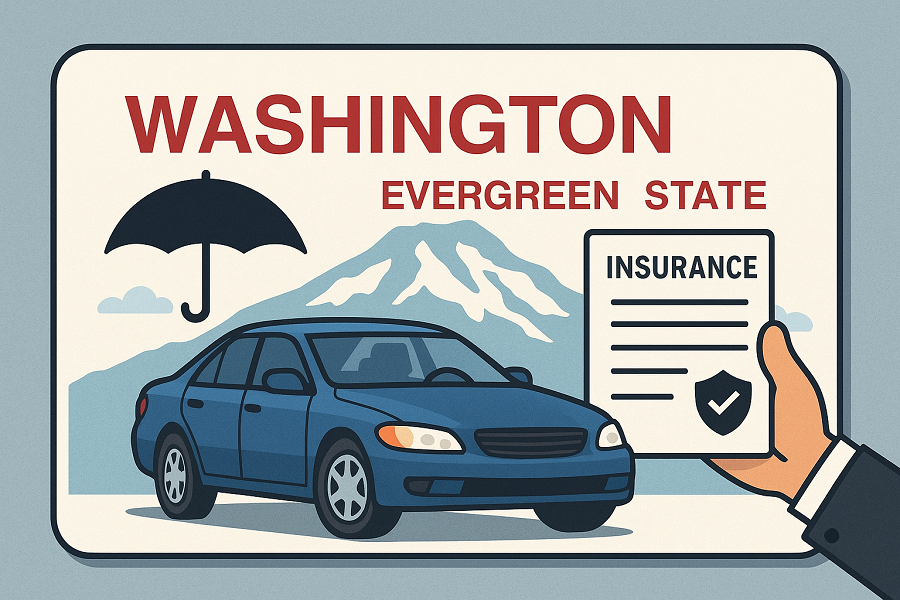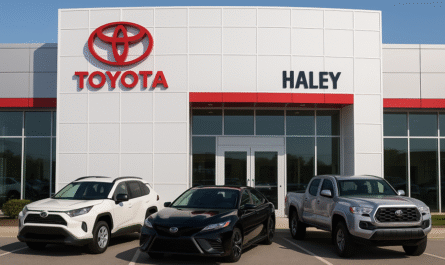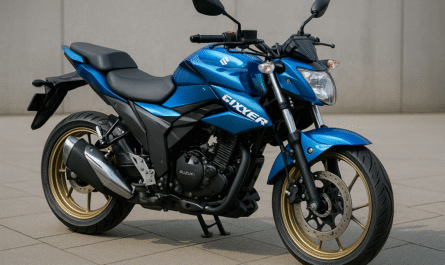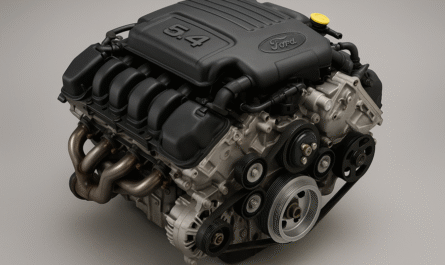Table of Contents
Table of Contents
Car insurance in Washington is a must for every driver, whether you’re cruising through Seattle’s rainy streets, tackling Spokane’s icy roads, or exploring the scenic highways of the Cascades. Washington state car insurance laws require specific coverage to keep you legal and financially protected. However, finding the right policy, whether it’s affordable Auto insurance in Washington or the best car insurance in Washington for comprehensive protection, can feel overwhelming. Don’t worry! This guide breaks down everything you need to know about car insurance in Washington, from minimum requirements to tips for saving on premiums. With clear explanations, practical advice, and up-to-date info for 2025, you’ll be ready to hit the road with confidence. Let’s dive in!
Why Car Insurance Matters in Washington
Car insurance in Washington isn’t just a legal checkbox; it’s your safety net. From fender benders in busy urban areas like Federal Way to wildlife crashes on rural roads, accidents happen. Washington is an at-fault state, meaning the driver responsible for an accident is liable for the damages. Without proper car insurance, you could face hefty fines, license suspension, or even personal financial ruin if you’re at fault in a crash. Plus, Washington’s amazing weather, which includes heavy rain, fog, or rare snow, makes comprehensive coverage a smart choice for many drivers. Whether you’re looking for affordable Auto insurance in Washington or the best car insurance in Washington for full protection, knowing your options helps you drive with confidence.
Washington State Car Insurance Requirements
Washington state car insurance laws are straightforward but strict. All drivers must have minimum liability coverage to legally drive a vehicle. Here’s what you need to know about Washington car insurance requirements:
- Minimum Liability Coverage: Washington mandates a 25/50/10 liability policy, which breaks down as:
- $25,000 for bodily injury or death per person in an accident you cause.
- $50,000 for bodily injury or death for all persons in an accident you cause.
- $10,000 for property damage per accident you cause.
- Personal Injury Protection (PIP): PIP is not mandatory, but insurers must offer it unless you decline it in writing. PIP covers medical bills, lost wages, and other expenses for you and your passengers, regardless of fault.
- Proof of Insurance: You must carry proof of insurance (physical or digital) at all times while driving. This could be an insurance card, a certificate of deposit, or a self-insurance certificate if you have 26 or more vehicles. Failing to show proof during a traffic stop can result in a fine of at least $550.
Instead of traditional car insurance, Washington allows alternatives like a $60,000 certificate of deposit or a liability bond to prove financial responsibility. However, these options are less common and don’t provide the same protection as a standard policy.
Why It Matters: These minimums ensure you can cover damages if you’re at fault, but they’re relatively low compared to vehicle values and medical costs today. Many experts recommend higher liability limits or additional coverage for better protection.
Optional Coverages for Car Insurance in Washington
Beyond the car insurance requirements in Washington, optional coverages can enhance your protection. Here are popular add-ons to consider when shopping for car insurance in Washington:
- Collision Coverage: Pays for damage to your car after an accident, regardless of fault. It’s ideal for newer or financed vehicles.
- Comprehensive Coverage: Covers non-accident damages like theft, vandalism, fire, or weather-related incidents (e.g., flooding or hail). Given Washington’s risk of heavy rain and wildfires, this is a common choice.
- Uninsured/Underinsured Motorist (UM/UIM) Coverage: Protects you if you’re hit by a driver with no or insufficient insurance. It’s optional but recommended, as not all drivers comply with Washington state car insurance laws.
- Roadside Assistance: Covers towing, tire changes, or fuel delivery if you’re stranded. Great for rural drives in areas like the Olympic Peninsula.
- Rental Car Reimbursement: Pays for a rental car while yours is repaired after a covered claim.
- Gap Insurance: Covers the difference between your car’s value and what you owe on a loan or lease if it’s totaled. Useful for financed vehicles.
- Accident Forgiveness: Prevents rate hikes after your first at-fault accident (offered by some insurers).
Pro Tip: Full coverage (liability, collision, and comprehensive) isn’t required by law but is often mandated by lenders for financed cars. It’s a solid option for comprehensive car insurance in Washington.
Factors That Affect Auto Insurance Rates in Washington
Auto insurance rates in Washington depend on several factors. Understanding these can help you find cheap auto insurance in Washington or predict your costs. Here’s what influences your premiums:
- Age and Gender: Younger drivers, especially teens, pay more due to inexperience. For example, 16-year-olds may pay up to $4,294 annually for full coverage, while drivers in their 60s often pay the least. Men typically pay about $70 more per year than women.
- Driving Record: A clean record keeps rates low. Violations like speeding tickets (+20% premium increase) or DUIs (+$520 annually) significantly raise costs.
- Credit History: Washington allows insurers to use credit-based insurance scores. Drivers with poor credit may pay more, though the impact is less severe than in other states.
- Location: Urban areas like Federal Way have higher rates ($259/month for full coverage) due to traffic and crime, while rural Spokane Valley is cheaper ($416/year for minimum coverage).
- Vehicle Type: Luxury or sports cars (e.g., BMW 330i) cost more to insure than practical vehicles like a Honda Odyssey.
- Coverage Level: Minimum coverage averages $576–$688/year, while full coverage averages $1,347–$1,608.
- Mileage and Usage: Low-mileage drivers or those with safe habits may qualify for discounts, especially with telematics programs like Progressive’s Snapshot.
Fun Fact: Washington’s population density drives up rates in cities like Seattle ($77/month for minimum coverage) compared to rural Vancouver ($66/month).
Best Companies of Car Insurance in Washington
Finding the best car insurance in Washington depends on your requirements, budget, and preferences. While we won’t endorse specific companies, here’s an overview of insurers frequently cited for competitive rates or strong customer service in Washington, based on recent data:
- PEMCO Insurance: Known for low rates, averaging $158/year for minimum coverage and $918/year for full coverage. Popular for drivers with poor credit or teens.
- USAA: Offers the lowest average rates ($86/month for full coverage) but is only available to military members, veterans, and their families.
- State Farm: Affordable full coverage at $93/month, with strong customer satisfaction ratings.
- GEICO: Competitive rates at $1,171/year for full coverage, ideal for good drivers.
- Progressive: Offers rates starting at $26/month for minimum coverage, plus discounts like Snapshot for safe drivers.
- Travelers: Known for affordable liability-only policies ($34/month) and customizable options.
- Nationwide: Full coverage at $121/month, with solid options for bundling home and auto.
- Capital Insurance Group: Affordable for low-income drivers, averaging $75/month.
Note: Rates vary by driver profile, so always compare quotes. Look for insurers with high customer satisfaction (check J.D. Power’s 2024 U.S. Auto Insurance Study) and financial stability (via AM Best ratings).
How Much Is Car Insurance in Washington?
Auto insurance rates in Washington are normally lower than the national average, but costs depend on coverage and driver profile. Here’s a breakdown of average costs in 2025:
- Minimum Coverage: $438–$688/year ($37–$57/month).
- Full Coverage: $1,325–$1,608/year ($111–$134/month).
- By City:
- Spokane: $975/year (full coverage), $416/year (minimum).
- Bellevue: $1,211/year (full coverage).
- Federal Way: $259/month (full coverage, highest in state).
- Seattle: $77/month (minimum coverage).
- By Age:
- Teens (16–19): $4,294/year (full coverage).
- 25-year-olds: $1,779/year (full coverage).
- 40-year-olds: $1,347/year (full coverage).
- 65-year-olds: $1,316/year (full coverage).
- By Driving Record:
- Clean record: $1,608/year (full coverage).
- Speeding ticket: +$250–$326/year.
- DUI: +$520/year.
- By Credit:
- Good credit: $1,608/year (full coverage).
- Poor credit: $60/month (minimum coverage with PEMCO).
Why It Varies: Rates reflect local risks (e.g., urban traffic or wildfire-prone areas), your driving habits, and your chosen coverage. Washington’s 2024 rate spike of 24% also reflects rising repair costs and accident frequency.
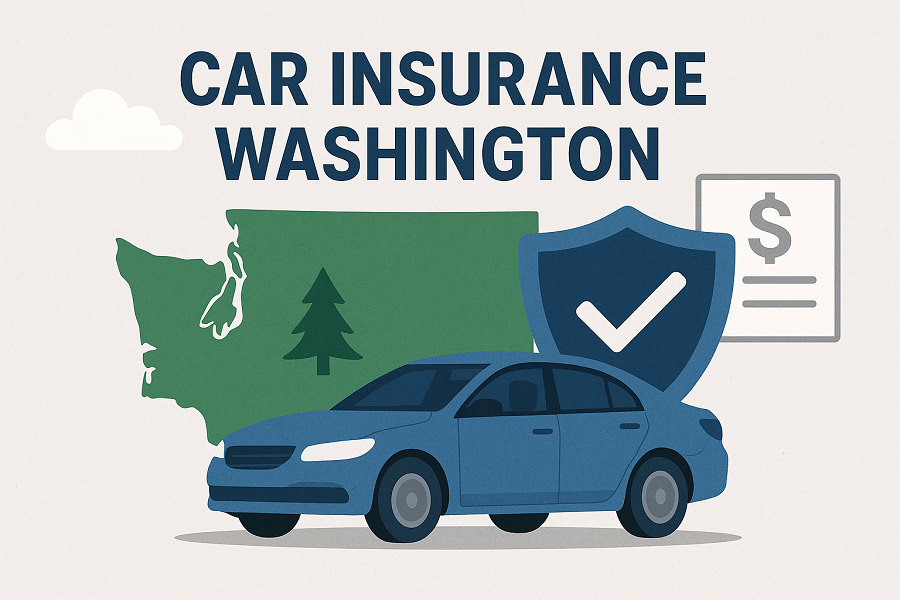
Tips for Finding Cheap Car Insurance in Washington
Want to know how to save on car insurance in WA? Here are practical tips to lower your premiums without sacrificing coverage:
- Compare Quotes Regularly: Shop around every 6–12 months to find the best car insurance in Washington. Use online tools like The Zebra or contact an independent agent to compare multiple insurers.
- Bundle Policies: Combine car insurance with home or renters insurance for discounts (e.g., Progressive offers 20%+ savings on bundling).
- Raise Your Deductible: Opting for a higher deductible (e.g., $1,000 instead of $500) lowers monthly premiums, but ensure you can cover the deductible if needed.
- Ask About Discounts: Common discounts include:
- Safe driver (clean record for 3+ years)
- Low mileage (ideal for remote workers)
- Anti-theft devices or safety features
- Multi-car policies
- Good student (for teens with a B average)
- Defensive driving course (especially for seniors)
- Maintain a Clean Record: Avoid tickets or accidents to keep rates low. A single speeding ticket can raise premiums by 20–51%.
- Consider Usage-Based Insurance: Programs like Progressive’s Snapshot or Lemonade’s telematics reward safe, low-mileage drivers with lower rates.
- Choose a Cheaper Vehicle: Insure a practical car like a Honda Odyssey instead of a sports car to save up to 38% on premiums.
- Pay Annually: Some insurers offer discounts for paying your premium upfront instead of monthly.
For Low-Income Drivers: Washington doesn’t offer a state-sponsored low-income insurance program, but companies like Capital Insurance Group provide inexpensive options starting at $75/month. Compare quotes and opt for liability-only if you drive an older car.
How to Compare Car Insurance Quotes in Washington
Comparing quotes is the key to finding cheap auto insurance in Washington. Here’s a step-by-step guide:
- Gather Your Info: Have your driver’s license, vehicle details (make, model, year), driving history, and current coverage details ready.
- Use Online Tools: Websites like The Zebra, Policygenius, or CarInsurance.com let you compare quotes from top insurers by entering your ZIP code.
- Contact an Independent Agent: Agents can shop multiple insurers for you, saving time and potentially finding exclusive discounts.
- Compare Apples to Apples: Ensure quotes have the same coverage limits (e.g., 25/50/10 or 100/300/100), deductibles, and add-ons for a fair comparison.
- Check Customer Reviews: Look at J.D. Power ratings or online reviews for customer service and claims handling.
- Ask About Discounts: Confirm which discounts apply to you (e.g., bundling, safe driver, or low mileage).
- Review Financial Stability: Choose insurers with strong AM Best ratings to ensure they can pay claims.
Pro Tip: Don’t just focus on price. A cheap policy with poor customer service or slow claims processing can cost you more in the long run.
Common FAQs About Washington Car Insurance
Here are answers to questions Washington drivers often ask about car insurance:
1. Is car insurance mandatory in Washington?
Yes, all drivers must carry at least 25/50/10 liability coverage or an alternative like a $60,000 bond or certificate of deposit. Driving without insurance can lead to fines of $550 or more, license suspension, or an SR-22 requirement.
2. What happens if I drive without insurance?
You could face a $550 fine, license and registration suspension, and an SR-22 filing requirement for three years. If you cause an accident, you’re personally liable for damages.
3. Is Washington an at-fault state?
Yes, the driver at fault in an accident is responsible for damages. Liability insurance covers these costs, but you can also file a claim against the at-fault driver’s policy.
4. Do I need uninsured motorist coverage?
It’s not required but highly recommended, as it protects you if an uninsured or underinsured driver hits you.
5. Can I show digital proof of insurance?
Yes, Washington allows digital proof (e.g., on your phone) during traffic stops or accidents.
6. How can I lower my rates after a ticket or accident?
Shop around, take a defensive driving course, or switch to a telematics program to prove safe driving habits.
7. Does my credit score affect my rates?
Yes, but the impact is less severe in Washington than in other states. Drivers with poor credit can still find affordable options with companies like PEMCO.
Recent Law Updates for Car Insurance in Washington (2024–2025)
Washington has introduced changes to increase transparency and fairness in car insurance. Here’s what’s new:
- Premium Increase Transparency (June 2024): Insurers must include a disclaimer on renewal notices explaining that you can request details about why your premium increased. Starting June 1, 2027, insurers must provide written explanations for rate hikes of 10% or more.
- Total Loss Appraisal Rights (January 2026): Starting January 1, 2026, Bill 5721 allows drivers to get an independent appraisal if they believe their insurer undervalued a totaled vehicle. This gives you more power to negotiate fair payouts.
- No Changes to Minimum Requirements: Washington’s 25/50/10 liability and PIP offering rules remain unchanged for 2025. If requirements change in the future, your insurer must notify you.
Why It Matters: These updates empower drivers to understand rate increases and fight for fair settlements, making it easier to manage car insurance in Washington. Stay informed by checking with the Washington Office of the Insurance Commissioner (800-562-6900).
Conclusion: Drive Smart with Car Insurance in Washington
Navigating car insurance in Washington doesn’t have to feel like a rainy commute on I-5. By understanding Washington state car insurance laws, exploring optional coverages, and shopping for quotes, you can find the best car insurance in Washington for your needs and budget. Aim for at least the minimum 25/50/10 liability coverage, but consider full coverage for extra protection, especially in wildfire-prone or urban areas. To save on car insurance in WA, compare quotes, bundle policies, maintain a clean driving record, and ask about discounts. With rates averaging $1,608/year for full coverage and $576–$688 for minimum coverage, there’s a policy out there for every driver, from Spokane to Seattle.
